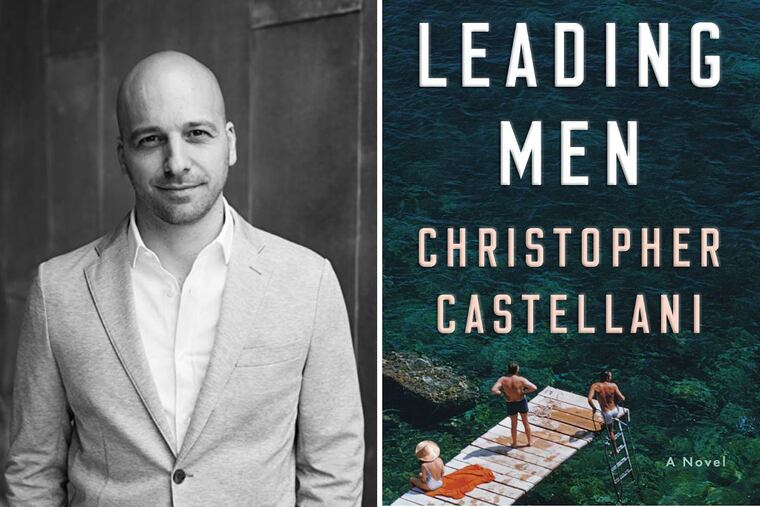‘Leading Men’: A novel about the complicated love life of Tennessee Williams
Based on the life and loves of Tennessee Williams, this picaresque novel is best when it sticks to the facts.

Leading Men
By Christopher Castellani
Viking. 358 pp. $27
Reviewed by Louis Bayard
In the summer of 1949, Tennessee Williams and Frank Merlo were meeting with a Hollywood studio exec when the exec politely asked Merlo what he did for a living. In a clear and ringing voice, Merlo answered, “I sleep with Mr. Williams.”
The comment suggests a degree of sexual freedom unusual for that era, but it also gets at the fraught relationship between artists and their support systems. Who, in the end, supports the systems? Or, as Christopher Castellani asks in the opening pages of the novel Leading Men: “Other than sleep with Mr. Williams, what had Frank Merlo done with his life?”
Judging by this touching but diffuse novel, it was a lot and maybe not enough. When next we meet them, Williams and Merlo are peregrinating through 1953 Italy. Tenn has been tasked with writing English dialogue for Luchino Visconti’s new film. Plagued as usual by self-doubt, he fights off his “blue devils” with whiskey and pills but still goes to work every morning “like a stonemason to a cathedral,” carving out the fragments of what became Orpheus Descending and Cat on a Hot Tin Roof.
As for Merlo, , the large-hearted figure who “floated from the Marines to the stage to the film set, from women to men, from man to man, from driving a truck in Jersey to ironing shirts for the greatest playwright of the twentieth century” ... well, lacking an obvious career path of his own, he chooses to spend his life force on the people he meets, most notably Anja, a young Swedish woman “short on joy and long on complaints” who is trying to escape her mother’s death grip.
Other people climb on board. Squabbles break out, alliances are tested, acting careers are broken and made. And as the characters wander from Portofino to Rome and Venice — eating and flirting and getting drunk and getting sunburned — the book becomes, by its own inclination, a seriocomic picaresque. Narrative tension may flag at times, but some zesty real-life figure is always rushing forth to distract us: Paul Bowles to get high, Anna Magnani to make lunch, Truman Capote to toss another bon mot on the fire. (“Italian men prefer their wives fat and their mistresses fatter.” “Obscurity is a disease soon cured by mediocrity.”) The most surprising figure is the now-obscure John Horne Burns, a briefly lionized postwar American author whom we find spiraling into alcoholic decline.
Once, just once, Castellani gives us a view of something harrowing: an army of feral boys setting upon a group of tourists, “slicing into their thighs and backs with their sharp raccoon nails, digging under the skin as if trying to scoop out chunks of flesh.” Yet even this bare moment is clothed by prefigurement: We grasp, even as we read, that Williams will turn it into the cannibalistic climax of Suddenly, Last Summer.
Castellani knows his people, though, and he knows this world: How the sun sets on an overgrown sculpture garden, how prostitutes congregate in the roadside parking lots outside Rome, the “military precision” of an Italian beach, and the overweening vanity of an Italian film director.
Where Castellani errs, I think, is in transferring so much of his narrative to the invented character of Anja, who matures (improbably) into a legendary movie actress. By the time her story thread is played out, Leading Men has acquired a few too many leads and a superfluous climax or two.
Castellani recovers in time for a poignant finale that puts the focus back where it belongs: on Tenn and Frank, trying to figure out, perhaps too late, what they mean to each other. “It still had no name, the nature of their long association, their fifteen years — a lifetime! — of trips and plans and nightingales and cautious public affections. Maybe it never would. Maybe they invented it.”
Louis Bayard is the author of the forthcoming novel “Courting Mr. Lincoln.” He wrote this review for the Washington Post.